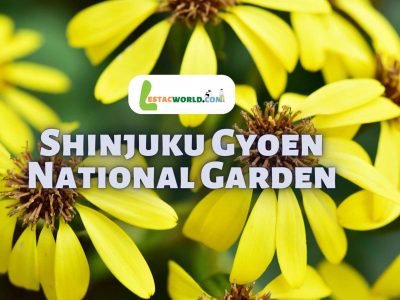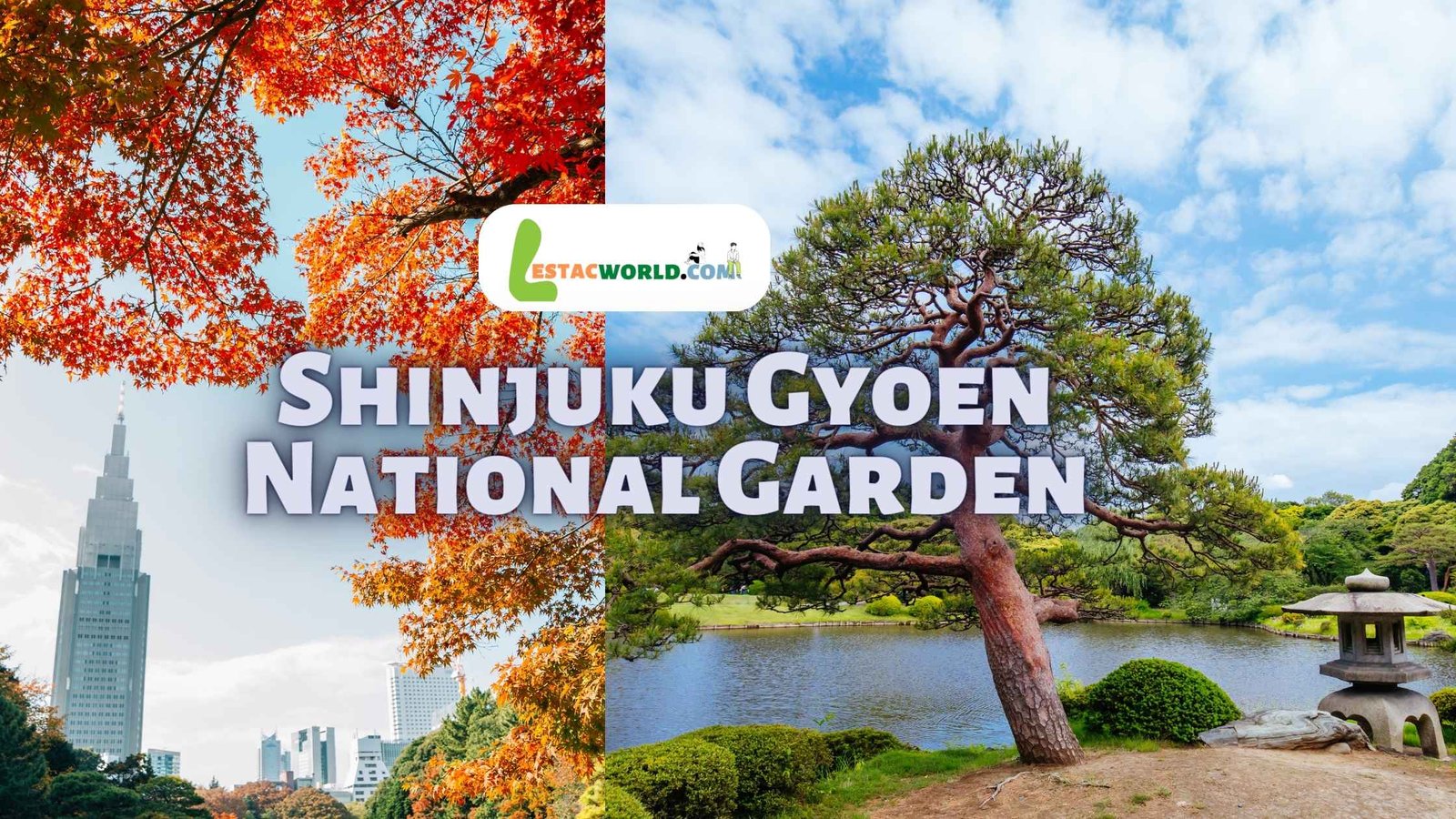About Shinjuku Gyoen National Garden
The Shinjuku Gyoen National Garden is a sizable park that can be found in Shinjuku, which is located in the city of Tokyo, Japan. It was initially constructed in 1906 as a private garden for the imperial family, and it was not until 1949 that it was made available to the general public. The park has several different types of landscapes, including traditional Japanese gardens, English landscapes, and formal French gardens. It has a total size of about 58.3 hectares.
The traditional Japanese garden is one of the most popular attractions in the park. It has a huge pond that is surrounded by trees and plants, as well as a tea house where visitors may have tea and traditional Japanese sweets. The French formal garden is distinguished from its English counterpart by its symmetrical layout and meticulously tended flower beds, while the English landscape garden is known for its expansive lawns, vibrant flower beds, and diverse selection of trees.
In addition to its outdoor gardens, the Shinjuku Gyoen National Garden also contains a number of greenhouses, each of which is home to a different exotic plant collection sourced from different regions of the world. In the springtime, the park is a well-liked destination for cherry blossom viewing in addition to its popularity as a venue for picnics, walks, and the observation of birds.
Anyone who is interested in gardening or nature absolutely ought to pay a visit to the Shinjuku Gyoen National Garden, as it is an absolutely stunning and tranquil haven right in the middle of Tokyo.
Hisotry of Shinjuku Gyoen National Garden
The Shinjuku Gyoen National Garden has a rich and eventful history that can be traced back to the latter half of the nineteenth century. The park was originally constructed in 1906 as a private garden for the imperial family, and it was intended to exhibit a number of different landscapes, including traditional Japanese gardens, English landscapes, and French formal gardens. The park served as an agricultural research facility during World War II before it was opened to the public in 1949. During that time, the park was used.
The Shinjuku Gyoen National Garden has seen a number of renovations and expansions throughout the course of its history. One of these projects was the creation of a number of greenhouses, which are now home to an extensive collection of exotic plants sourced from all over the world. In addition, the Japanese government has classified the park as a national park; the Tokyo Metropolitan Park Association is currently responsible for the park’s maintenance and operation.
Shinjuku Gyoen National Garden is currently one of the parks in Tokyo that is considered to be among the most popular, and it receives millions of tourists each year. Picnics, long walks, and observing birds are just some of the activities that people like doing in this oasis of calm and serenity in the middle of the metropolis. The park is especially well known for its cherry blossom viewing in the spring, and due to its stunning gardens and landscapes, it is an absolute must-see for anyone who has an interest in gardening or the natural world.
How to reach Shinjuku Gyoen National Garden
Shinjuku Gyoen National Garden is located in Shinjuku, Tokyo, Japan and can be easily reached by several means of transportation:
- By train: The park is a short walk from Shinjuku Gyoenmae Station on the Marunouchi subway line, or a 10-minute walk from Shinjuku Station, which is served by several train and subway lines.
- By bus: Several bus lines stop near the park, including the Tokyo Metropolitan Government Bus, which runs between Shinjuku Station and the park.
- By taxi: Taxis are readily available in Tokyo, and the park is a short ride from Shinjuku Station.
- By bike: Bicycle rentals are available near the park, and cycling is a popular way to get around Tokyo.
Highlights of Shinjuku Gyoen National Garden
Shinjuku Gyoen National Garden is a beautiful park in Shinjuku, which is in Tokyo, Japan. It is one of the most visited places in the city. Some of the best things about the park are:
- Traditional Japanese Garden: The traditional Japanese garden is one of the most popular spots in the park. It has a large pond surrounded by trees and bushes, as well as a tea house where people can drink tea and eat traditional Japanese sweets.
- The English Landscape Garden is a popular place for picnics and relaxing because it has wide lawns, colorful flower beds, and many different kinds of trees.
- French Formal Garden: The French formal garden has well-kept flower beds and a symmetrical design. It is a beautiful and peaceful place to take a stroll.
- Greenhouses: The park’s greenhouses are home to a wide range of tropical and subtropical plants, cacti, and succulents from all over the world.
- Viewing cherry blossoms: In the spring, the park is known for its beautiful cherry blossoms and is a popular place for hanami (cherry blossom viewing parties).
- Bird watching: Shinjuku Gyoen National Garden is a popular place to watch birds, and it is home to many different kinds of birds, such as the Japanese white-eye, the Japanese bush warbler, and the black-headed gull.
- Traditional Buildings: The park has a tea house and a traditional gate, among other traditional buildings, which give visitors a glimpse into Japan’s rich cultural history.
- Shinjuku Gyoen National Garden has something for everyone, whether you like gardens and horticulture, animals and bird watching, or traditional Japanese culture.
Do's and Dont's Shinjuku Gyoen National Garden
When visiting Shinjuku Gyoen National Garden, there are a few things to keep in mind to ensure that you have a pleasant and respectful experience:
Do’s:
- Respect the peace and quiet of the park: Shinjuku Gyoen National Garden is a peaceful and tranquil oasis in the heart of Tokyo, and visitors are asked to respect the quiet and peaceful atmosphere of the park.
- Follow the park rules: The park has several rules that are designed to protect its plants and wildlife, such as no smoking, no littering, and no picking flowers or plants.
- Dress appropriately: Visitors are asked to dress modestly and respectfully while in the park, and to remove their shoes before entering the tea house or other traditional buildings.
- Respect the wildlife: Shinjuku Gyoen National Garden is home to a variety of wildlife, including birds, insects, and small animals. Visitors are asked to respect the wildlife and not to feed or disturb them.
Don’ts:
- Don’t smoke: Smoking is not allowed in the park, and visitors are asked to dispose of their cigarette butts properly.
- Don’t litter: Littering is not allowed in the park, and visitors are asked to take their trash with them when they leave.
- Don’t pick the flowers or plants: Picking the flowers or plants in the park is not allowed, and visitors are asked to respect the beauty of the park by leaving the plants and flowers undisturbed.
- Don’t disturb the wildlife: Disturbing the wildlife in the park, such as feeding the birds or chasing the animals, is not allowed, and visitors are asked to respect the wildlife by leaving them alone.
By following these simple rules, you can help to ensure that Shinjuku Gyoen National Garden remains a peaceful and beautiful oasis for all visitors to enjoy.



Comment (0)